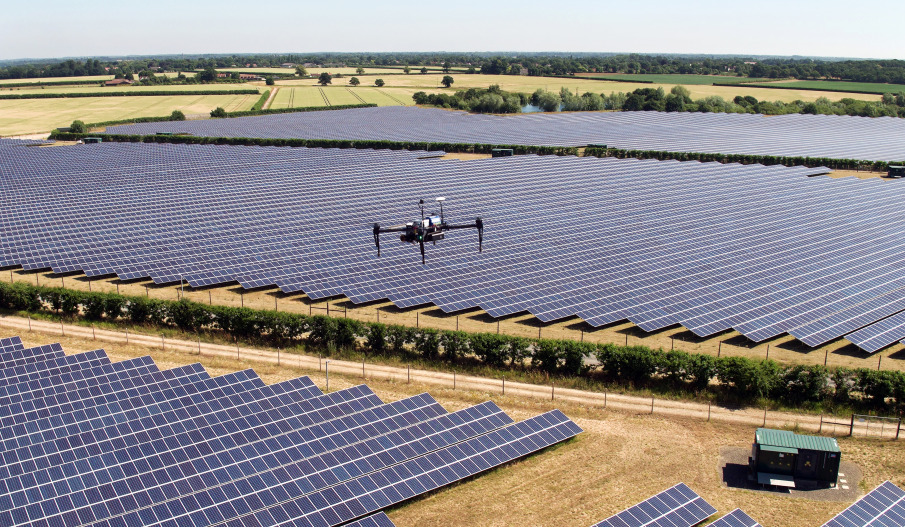
‘Largest’ private wire solar connection in England set to power Nissan facility. Image: NC
A 20MW solar park with a private wire connection is set to power a Nissan manufacturing facility in Sunderland.
Dubbed the ‘largest' solar park with a private wire connection in the country by project developers Engenera Renewables Group, the landmark project will comprise of more than 36,000 solar panels and be situated near a Nissan owned manufacturing facility.
Nissan has also entered into a 20-year power purchase agreement (PPA) for the solar project.
The solar project will play a crucial role in decarbonising Nissan’s operations and will help it achieve its EV36Zero project, which aims to have the motor manufacturer carbon neutral across the life cycle of its products by 2050.
The solar project will provide energy for Nissan’s Sunderland facility, totalling 20% of the plant’s energy needs. According to the company, this is enough to build every Nissan LEAF electric vehicle sold in Europe, according to the company.
The project has also been acquired by Atrato Onsite Energy who purchased the Engenera Renewables Group-owned development company Hylton Plantation Solar Farm in a £10.6 million deal.
“The Nissan solar installation is a massive project and hugely important for a number of reasons. It represents the largest private wire installation Engenera has worked on to date,” said Lloyd Lawson, chief strategy officer at Engenera.
“It also gives Nissan a big boost towards achieving its goals of becoming completely carbon neutral across the life cycle of its products by fiscal year 2050.
“This investment by Atrato Onsite Energy ensures the long-term certainty of the scheme. It means all parties are getting what they need from the project. We now look forward to finalising this installation and working closely with Nissan on future projects.”
The renewable energy produced for the Nissan manufacturing plant will help reduce the overall carbon footprint of electric vehicles on UK roads as sales continue to grow.
A new record was set for battery electric vehicle (BEV) sales in December, rounding off a bumper year which saw a 76.3% rise.
Across the month, 27,705 BEVs were sold compared to 21,914 in 2020, according to figures from the Society of Motor Manufacturers and Traders (SMMT). This is equivalent to a 25.5% market share, which the SMMT said was a record market share in a non-locked down trading month.
With the UK setting in stone an internal combustion engine ban by 2030, electric vehicle sales are expected to continue their upward trajectory across the decade.
Despite the move by Nissan to incorporate further decarbonisation initiatives for the development of the company’s EVs, more must be done on the infrastructure side to cater for the growing market demand.
Despite growing sales, a report conducted by Connected Kerb stated the pace of the charging rollout isn’t keeping up. The report found that the ratio of EV charge points to plug-in cars deteriorated by 31% during 2020.
This also put Britain’s current ratio of 16:1 behind other countries including South Korea (3:1), the Netherlands (5:1), France (10:1), Belgium and Japan (both 13:1).
On the findings, Chris Pateman-Jones, CEO of Connected Kerb, said: “The industry is migrating from early adopters, tolerant of patchy performance, to a mass market of mainstream drivers that rightly expect consistent high performance.
“This demands a radical change of mindset amongst national and local government, investors, developers and charging point providers.”

